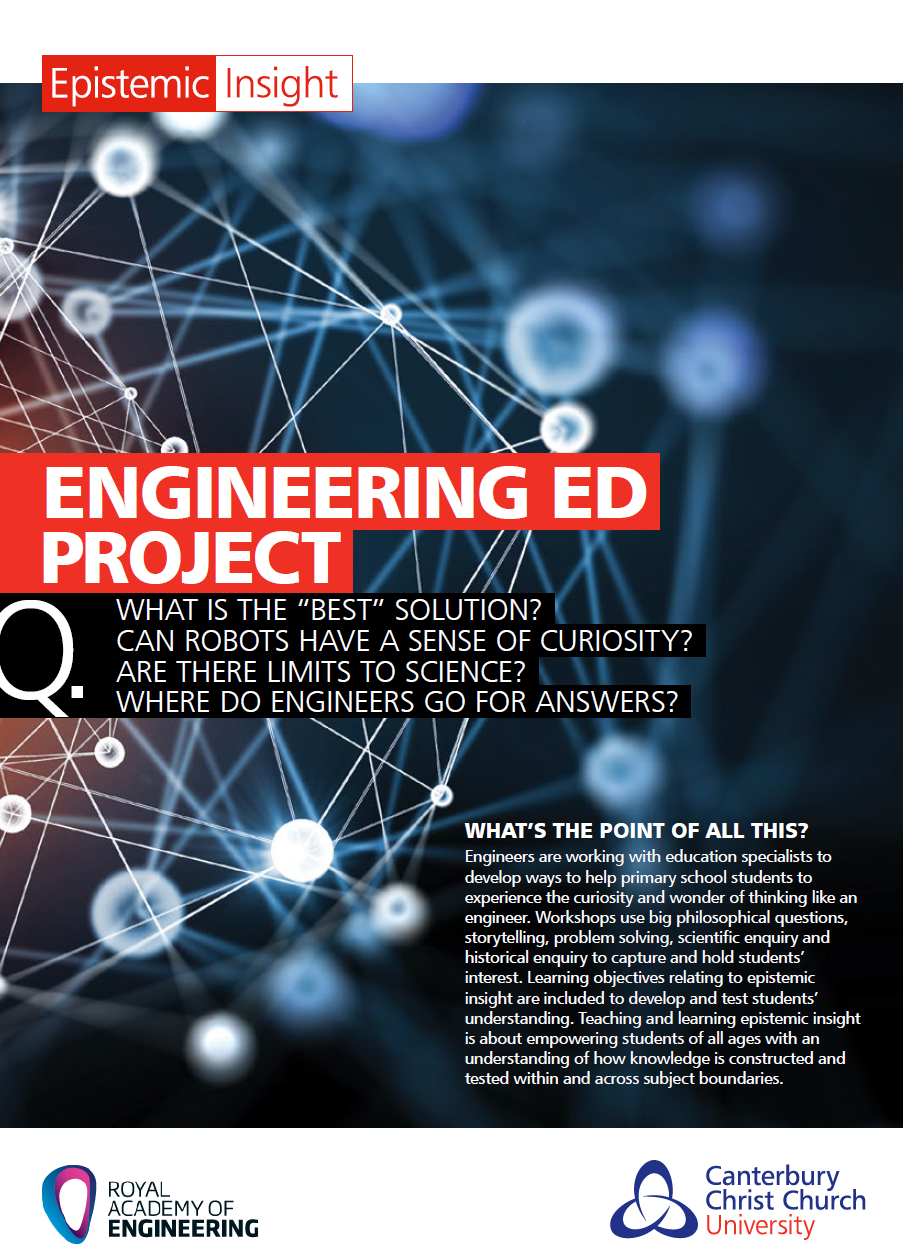
 ‘Engineering Ed: Working with engineers to teach children to think like engineers’ – a Royal Academy of Engineering (RAE) funded project focused on engineering in primary schools that ran from May 2018- July 2019.
‘Engineering Ed: Working with engineers to teach children to think like engineers’ – a Royal Academy of Engineering (RAE) funded project focused on engineering in primary schools that ran from May 2018- July 2019.
Within the broad theme of Epistemic Insight, this project will research the impacts for engineers and primary schools of designing and delivering workshops to give young people an authentic experience of the curiosity and wonder of thinking like an engineer.
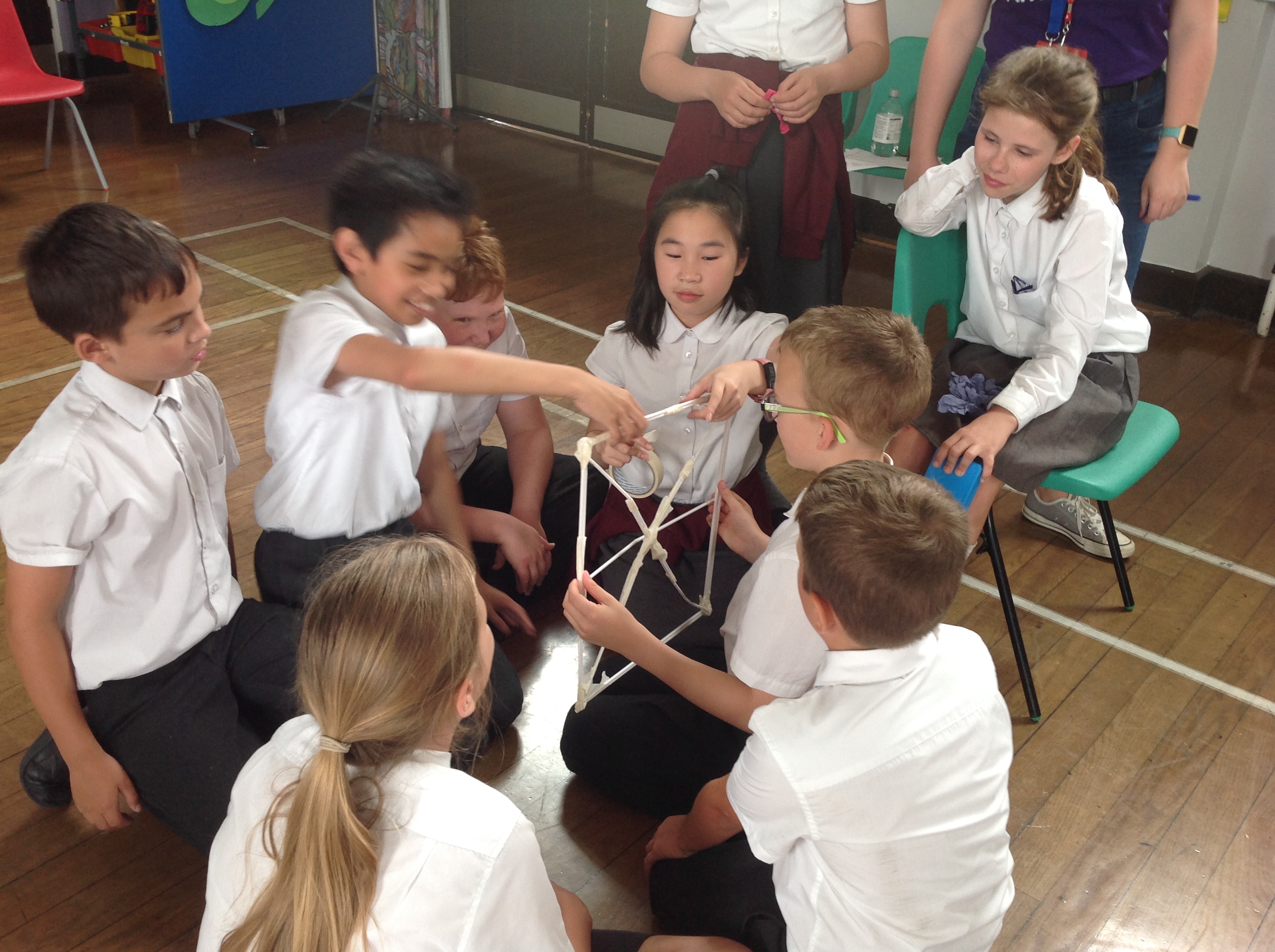
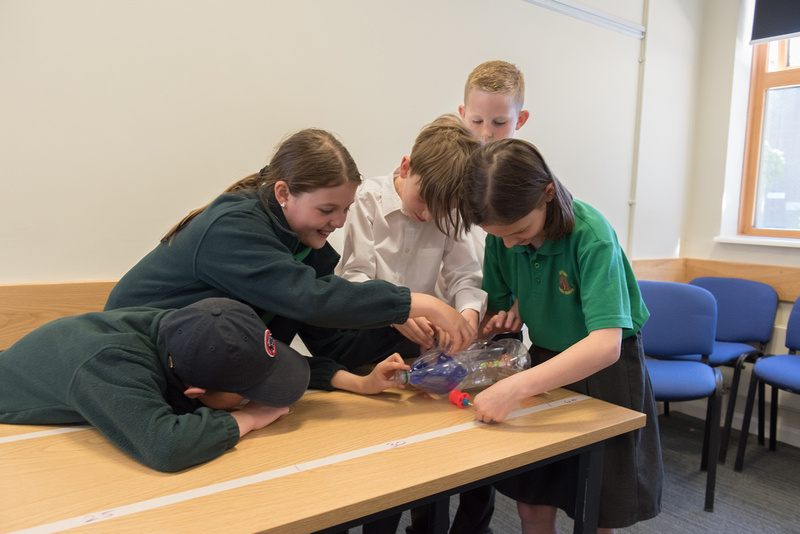
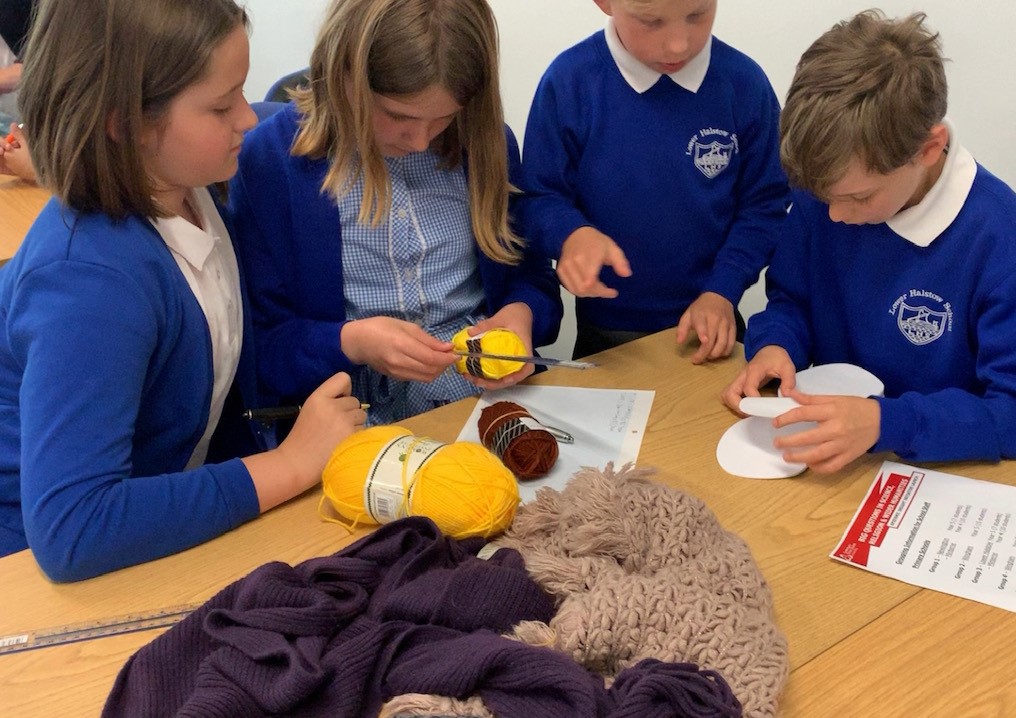
The ‘Working with Engineers to teach children to think like engineers’ project was designed to measure the impact for engineers of co-creating and delivering workshops for students to advance current thinking about engineering education for schools. The project worked with engineers to enable them to design workshops to raise primary students’ epistemic insight and develop their understanding of how “thinking like an engineer” could support them to bridge subject boundaries. The workshops were delivered by engineers individually and in small teams at campus events and in school. Working in partnership with education specialists, trainee teachers, and each other and supported by researchers at the LASAR Research Centre (Faculty of Education, Canterbury Christ Church University) engineers developed sessions that challenged students’ misperceptions about engineering and their school STEM experience of recipe investigations with a single correct method and solution.
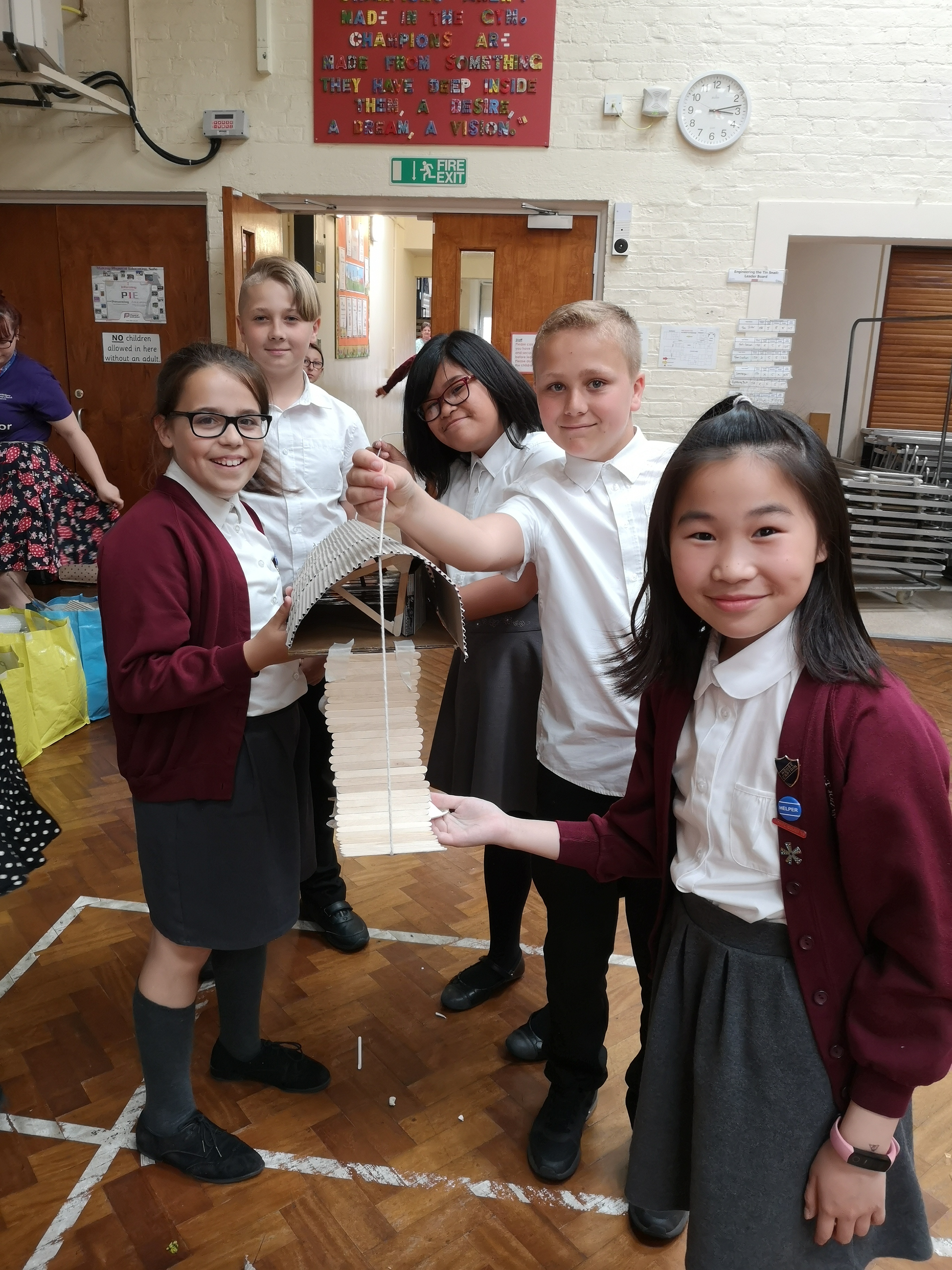
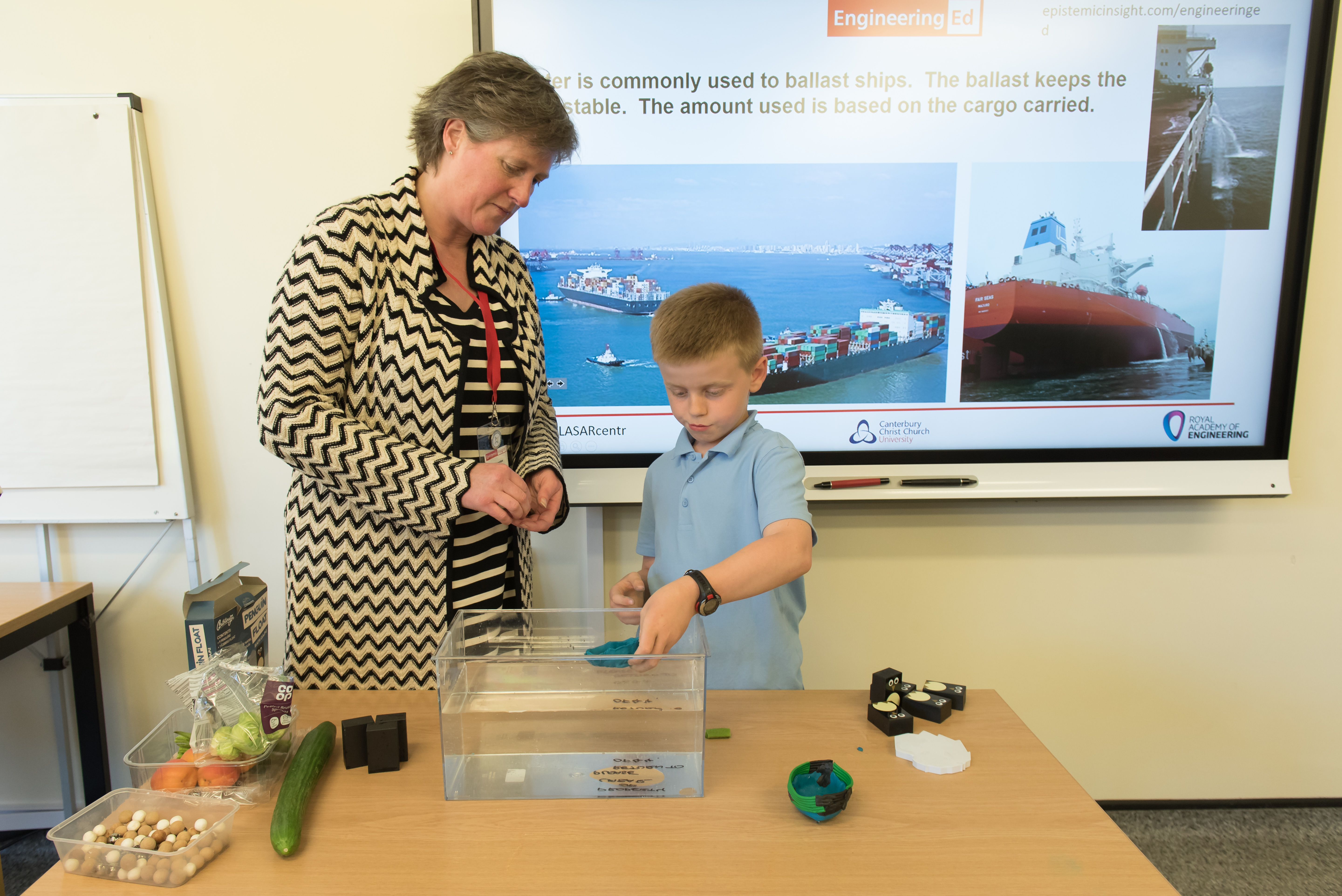
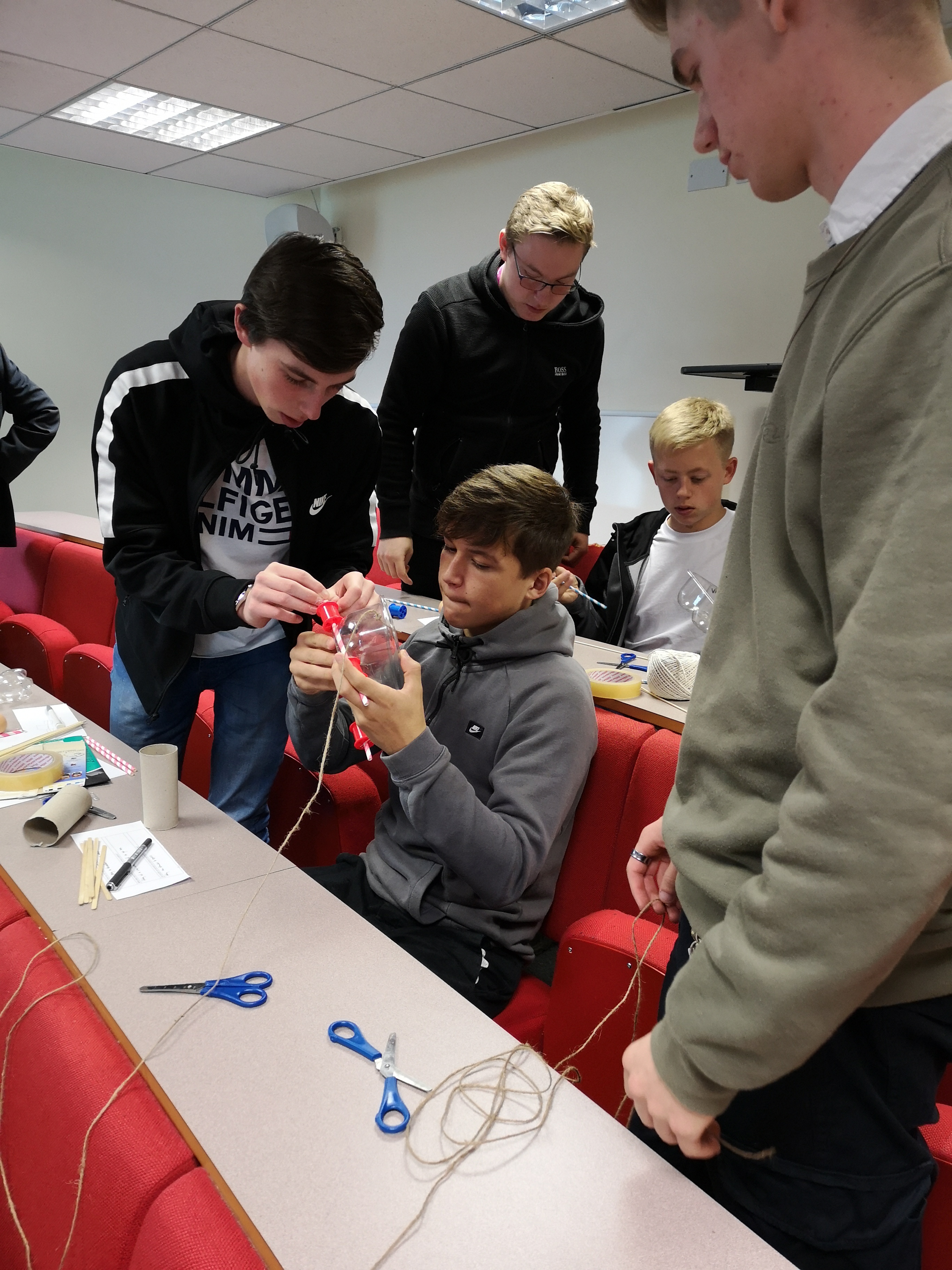

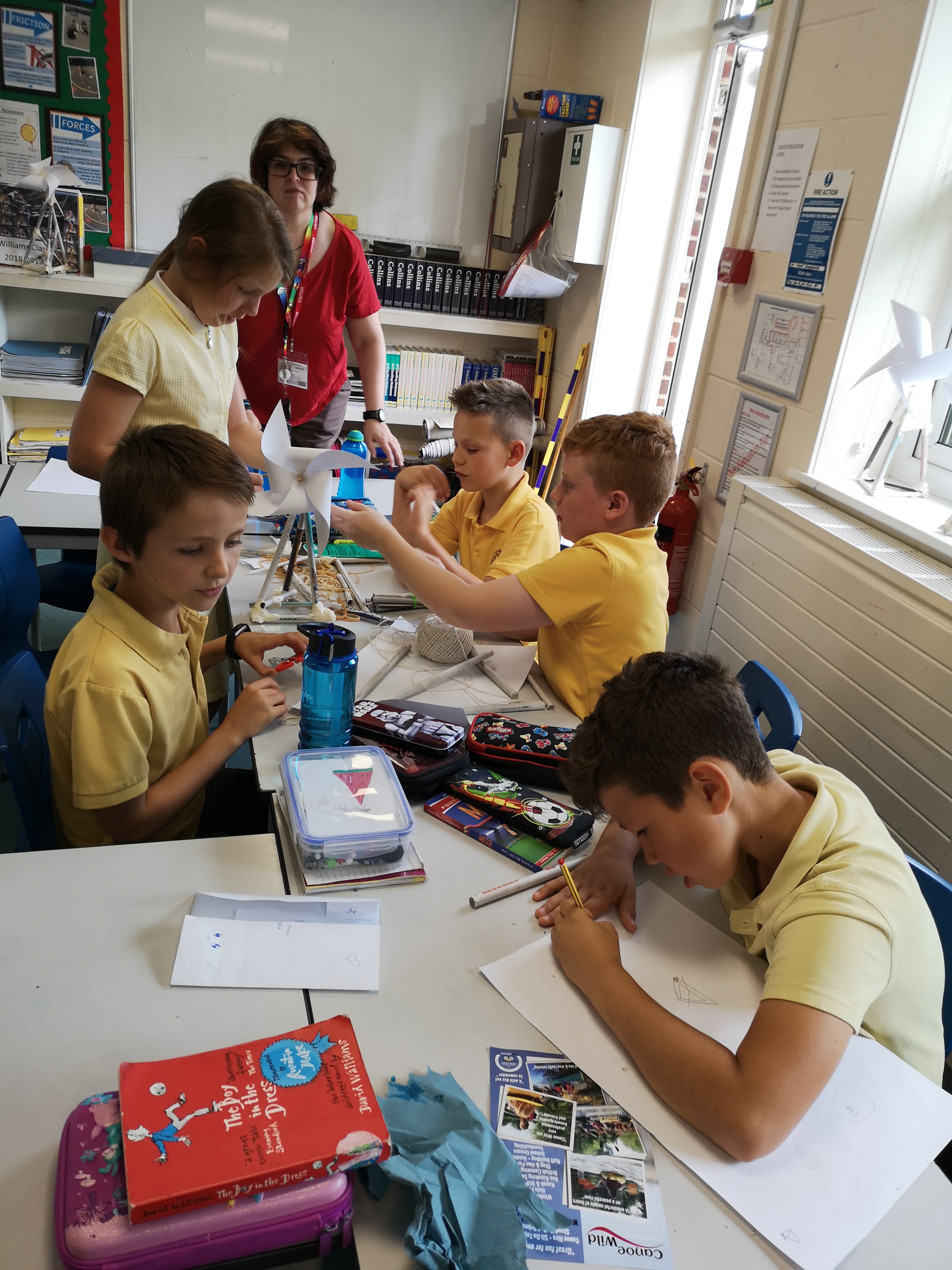
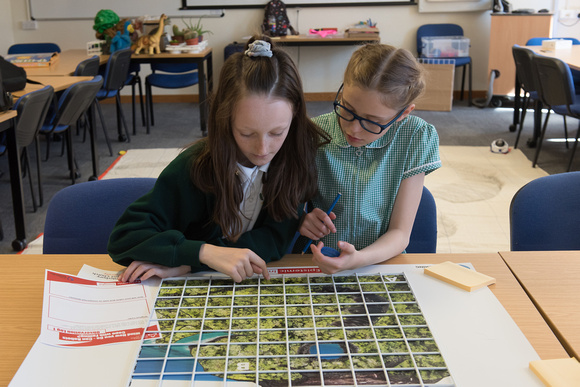
Who was involved?
ENGINEERS: The project recruited eight engineers who work in industry and/or academia. We advertised the project as an opportunity for engineers to work with education specialists to design workshops for primary schools and to explore the relationships between Engineering and Big Questions. The engineers come from sectors as diverse as the Royal Engineers Corp., aerospace, software and electronics, materials and maritime engineering. Of these four have continued to work in a sustained manner with LASAR and the Faculty of Education beyond the initial events to further develop, deliver and research the impact of the workshop on pupils’ understanding of engineering.
ENGINEERING STUDENTS: Workshops for primary schools were also designed and delivered by a full cohort of Level 3 Mechanical and Electrical Engineering Students at East Kent College (11 students). These students worked with LASAR and the Faculty of Education in teams to build their confidence in public engagement as engineers and design and deliver a workshop carousel at events on campus at CCCU. Their workshops continue to be included in events organised and delivered by the LASAR team
BA PRIMARY EDUCATION STUDENTS: Eight BA Primary Education students worked with the engineers and engineering students during their training sessions to support the development of age appropriate and curriculum linked engineering workshops. In addition, they spent two days a week for a month in two participating primary schools focusing on engineering and science with the pupils, and then supported those students during their participation at two events on campus.
PRIMARY SCHOOLS: The contact with primary schools has varied from school to school and has ranged from one-off events to extended, sustained activities. For example at one primary school we worked with a full year group of year 5 pupils (approx. 60) across a series of sessions during January. These pupils attended two full day ‘Engineering and Big Questions’ events on campus and worked with BA Primary education students in school. Three schools have opted for Engineering and Big Questions Roadshow events in school. Five schools are participating in Engineering and Big Questions events on campus as part of the Epistemic Insight Initiative launch.
Further Information on Project Reach and Audience
The underlying epistemic insight pedagogy stems from research by Billingsley et. al, however the workshop design was led by the engineers drawing on their own experiences. The creativity and multidisciplinary associated with engineering became key features of the workshops, with sessions designed and delivered by engineers from six branches of engineering. 93% of participating students (aged 8-11) experienced at least three engineering sessions that asked them to develop solutions to the big questions, possibilities and opportunities provided by engineering. Initial analysis shows this approach, in combination with the engineers involved in the project has countered the misperception of engineering being men “fixing things”, with students gaining an understanding of the social and environmental aspects of engineering.
An unexpected aspect of the project was that whilst some workshops required specialist equipment, the equipment was either readily available to a primary school science team or could be purchased at an affordable cost, this meant that in-school sessions acted as CPD for many of the teachers involved, who have looked to adapt the sessions for additional students within their schools, or have been delivered by teacher trainees making links between engineering and other subject areas.
The project had an ambitious target of reaching 600 Key Stage 2 students through 30 in-school sessions and 2 events at CCCU campus, both these targets were exceeded reaching 756 students through 28 in-school sessions, 2 events on campus and a further 16 sessions delivered on campus. 55% of the in-school session were delivered to students within the 1% most deprived areas of the UK (according to UKGov Index of Multiple Deprivation), and in total 50% of the students reached were from within the 20% most deprived areas. The project achieved and approximate 50:50 female/male student ratio, with this often closer to 60:40 within individual groups.
The project achieved a 50% applicant rate from female engineers and of those delivering in-school sessions 75% were female and 50% were BAME. In addition to working with industry/academic engineers the project worked with engineering students from a local FE college which “has the highest level of student deprivation in the South East region with the vast majority of students at the college originating from wards with high levels of socio-economic deprivation”. This equates to 57% of the total engineers engaged with the project coming from under-represented socio-economic backgrounds (when added to female & BAME engineers this equates to 83% of the engineers being from under-represented groups).

